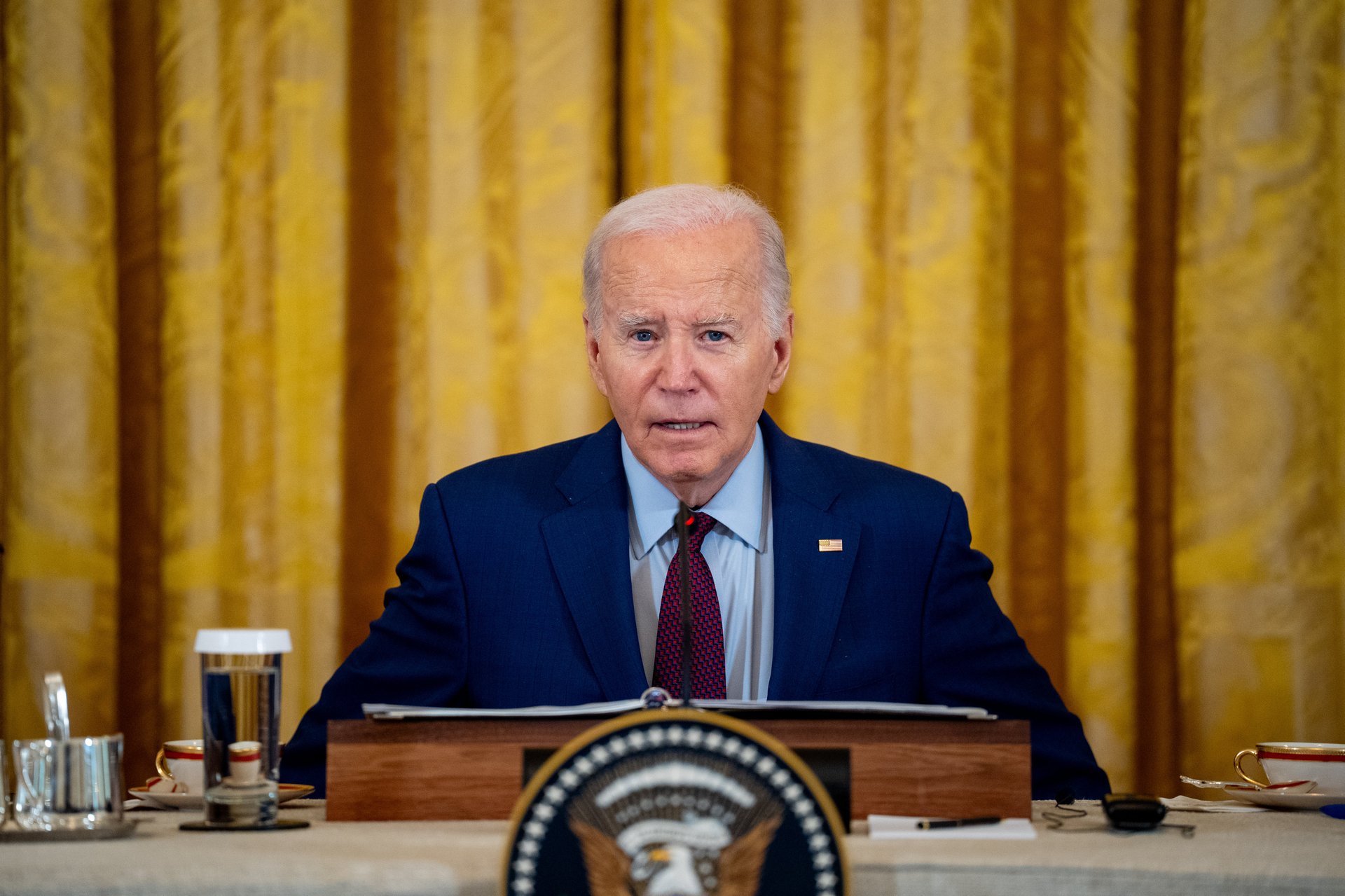Biden just slapped 100% tariffs on China EVs as the trade war ratchets up
New U.S. tariffs are primarily targeted at key industries where China can outcompete foreign rivals or soak up much of the world’s demand

The United States has announced plans to impose new tariffs on China’s exports of products in key industries as it seeks to weaken the country’s flood of goods into the West. The new restrictions are set to hit one industry particularly hard: electric vehicles.
Suggested Reading
Tariffs on some EV imports will quadruple, the Biden administration said, from 25% all the way to 100%.
Related Content
“As President [Joe] Biden says, American workers and businesses can outcompete anyone — as long as they have fair competition,” the White House said in a fact sheet detailing the tariffs early Tuesday morning. “But for too long, China’s government has used unfair, non-market practices.”
The range of new tariffs announced by the White House on Tuesday will be phased in over the next 3 years. They’re primarily targeted at key industries where China can outcompete foreign rivals or soak up much of the world’s demand.
Tariffs on semiconductors will double from 25% to 50%; tariffs will also rise on lithium-ion batteries, battery components, and necessary minerals to 25%. The U.S. also aims to increase tariffs on solar cells to 50% from 25%. Some medical supplies, including syringes and needles, and ship-to-shore cranes will also be subject to higher taxes.
The Biden administration added that tariffs on some steel and aluminum products will rise to 25%, from a current range of 0 to 7.5%. President Joe Biden last month asked the U.S. Trade Representative to consider tripling tariffs on Chinese steel and aluminum.
“Today’s actions to counter China’s unfair trade practices are carefully targeted at strategic sectors — the same sectors where the United States is making historic investments under President Biden to create and sustain good-paying jobs— unlike recent proposals by Congressional Republicans that would threaten jobs and raise costs across the board,” the White House said in a statement.
The new tariffs will most affect China’s automakers, which have been rapidly increasing their investments in electric vehicles and associated industries, like batteries.
Treasury Secretary Janet Yellen has said that Biden would not allow a second wave of the “China shock” of the early 2000s, referring to when a flood of Chinese imports removed 2.4 million U.S. manufacturing jobs.
The increased tariffs are also thought to be more of a symbolic than a practical gesture. Chinese EV makers largely avoid exporting to the U.S. due to existing tariffs imposed by former President Donald Trump’s administration.
One of the few exceptions is Polestar, a Sweden-based luxury EV maker that is owned by China’s Geely. Zeekr, a premium EV brand owned by Geely, went public in New York last week. Geely exported 2,217 cars to the U.S. between January and March.
But Biden — who has won the endorsement of the United Auto Workers union — is seeking reelection in November and has made protecting American manufacturing a cornerstone of his campaign. The issue is particularly pronounced in the auto industry. Senator Sherrod Brown, an Ohio Democrat seeking reelection in a state won twice by Trump, last month called for a “total ban” on China’s EVs.
The White House on Tuesday said the stronger tariffs will project the U.S.’s investments — and jobs — from “unfairly priced Chinese imports.” The European Union has launched in investigation into subsidies that Beijing provides EV makers, which helps keep their prices low. Some Chinese automakers, including BYD, can sell their cars for as little as $12,000 in some markets.
Tesla CEO Elon Musk in January called Chinese carmakers the “most competitive” in the world, telling investors that “I think if there are not trade barriers established, they will pretty much demolish most other companies in the world.”
U.S. officials are also concerned about reports that some Chinese auto giants are planning to build factories in Mexico. That includes BYD, MG Motor, and Chery. At least a dozen Chinese electric-car part suppliers have recently announced new factories or added to their existing investments in Mexico, The Wall Street Journal reported earlier this year.
“The introduction of cheap Chinese autos — which are so inexpensive because they are backed with the power and funding of the Chinese government — to the American market could end up being an extinction-level event for the U.S. auto sector,” the Alliance for American Manufacturing said in a Feb. 20 report warning that Chinese automakers may gain “backdoor” access to the U.S. market through Mexico.